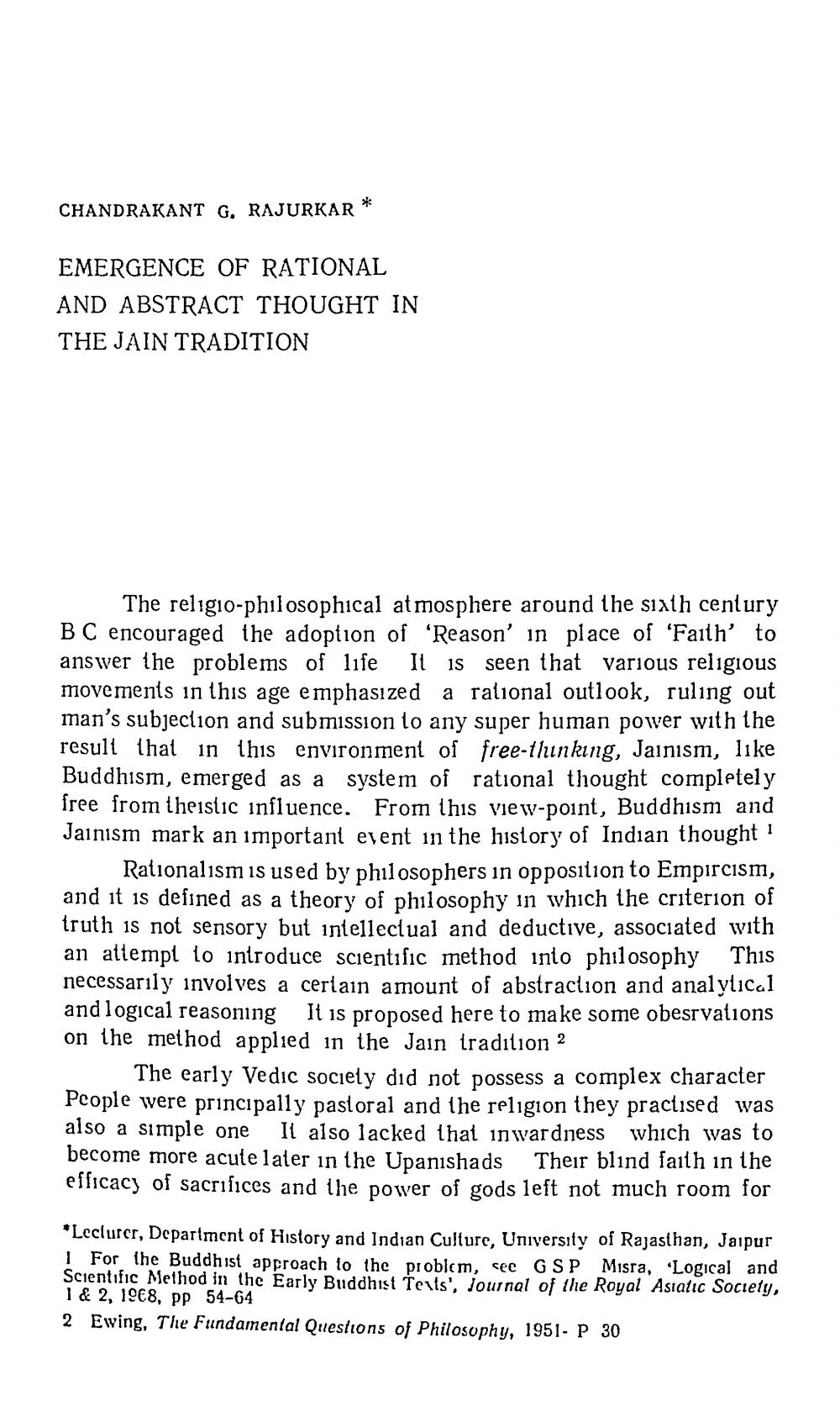________________
CHANDRAKANT G. RAJURKAR
**
EMERGENCE OF RATIONAL
AND ABSTRACT THOUGHT IN THE JAIN TRADITION
The religio-philosophical atmosphere around the sixth century BC encouraged the adoption of 'Reason' in place of 'Faith' to answer the problems of life It is seen that various religious movements in this age emphasized a rational outlook, ruling out man's subjection and submission to any super human power with the result that in this environment of free-thinking, Jainism, like Buddhism, emerged as a system of rational thought completely free from theistic influence. From this view-point, Buddhism and Jainism mark an important event in the history of Indian thought 1 Rationalism is used by philosophers in opposition to Empircism, and it is defined as a theory of philosophy in which the criterion of truth is not sensory but intellectual and deductive, associated with an attempt to introduce scientific method into philosophy This necessarily involves a certain amount of abstraction and analytical and logical reasoning It is proposed here to make some obesrvations on the method applied in the Jain tradition 2
The early Vedic society did not possess a complex character People were principally pastoral and the religion they practised was also a simple one It also lacked that inwardness which was to become more acute later in the Upanishads Their blind faith in the efficacy of sacrifices and the power of gods left not much room for
*Lecturer, Department of History and Indian Culture, University of Rajasthan, Jaipur 1 For the Buddhist approach to the problem, see GSP Misra, Logical and Scientific Method in the Early Buddhist Texts', Journal of the Royal Asiatic Society, 1 & 2, 1968, pp 54-64
2 Ewing, The Fundamental Questions of Philosophy, 1951- P 30




